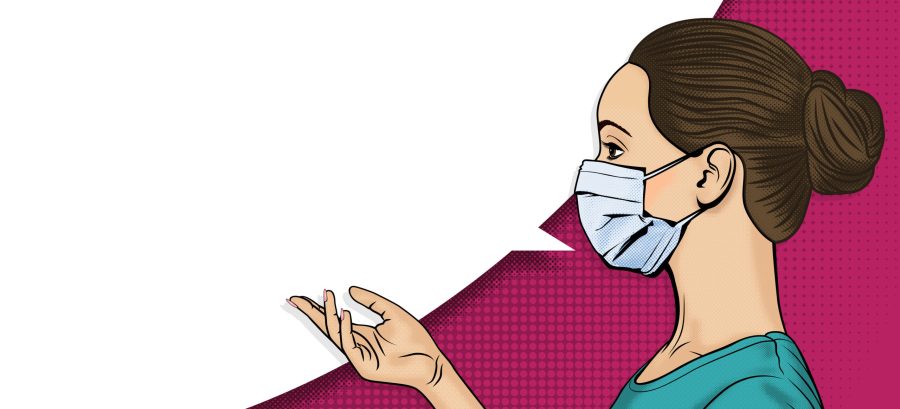Gender-related policies for COVID recovery: a Europe-wide scan of initiatives supporting women in work

To inform our upcoming Northern Ireland-based roundtable looking at pandemic recovery strategies that support women in the labour market, IPPO partners INGSA and the Blavatnik School of Government have conducted a rapid scan of notable European policy initiatives
Authors: Martina Di Folco, Annalena Pott and Naomi Simon-Kumar
Introduction
Around the world, some local and national governments have implemented gender-sensitive COVID-19 recovery plans that seek to address inequalities entrenched and exacerbated by the pandemic.
For instance, in 2020 the US state of Hawaii adopted a feminist economic recovery plan that aims to restructure its current economic system to one that delivers gender equality, by making gender a key consideration in the recovery from the current crisis.
However, other COVID-19 recovery plans appear to be falling short on gender equality and gender-sensitive measures. For example, while the European Commission’s #nextGenerationEU Recovery and Resilience Facility (RRF) requires member states to take gender equality into account, it lacks clear common indicators and enforcement of gender-sensitive approaches. The majority of the RRF’s financial support is also envisioned to be allocated to the digital and green sectors, in which women are typically underrepresented.
Resulting from this, most of the national recovery plans emerging from the RRF have limited references to gender equality, commonly in relation to gender-based violence and/or childcare support. Work-related measures tend to focus on flexible work or address all workers, rather than offering more specific initiatives to support women in the workplace.
Following on from IPPO’s Action On Inequalities event in June, IPPO will be hosting a virtual roundtable event focused on gender-based COVID-19 recovery on Thursday 25 November – specifically, it will ask: what policy changes are needed to support women in the labour market? This event will be hosted by IPPO’s policy lead, Queen’s University Belfast, in partnership with Pivotal public policy forum.
To help inform this discussion, IPPO partners INGSA and the Blavatnik School of Government have conducted a rapid scan of European policy initiatives geared towards supporting women in the labour market.
Women and work: a summary of European initiatives
Austria’s Recovery and Resilience Facility has invested in elementary school teaching and places in early childcare facilities, with the aim of enabling more women to combine work and care duties. It also promotes re-skills training programmes that enable women to seek new job opportunities.
Belgium’s RRF envisions to improve and expand re-skill training to facilitate the integration of vulnerable groups, including women, into the workforce and increase access to the labour market.
The RRF of Cyprus is part-focused on increased childcare, extending free compulsory pre-primary education from the age of four and investing in childcare centres. The country has a national action plan on early childhood education which is designed to ‘foster equal opportunities for all children and fulltime labour market participation of their carers [who are] mostly women’.
Denmark has introduced parental leave support, which allows both partners to take parental leave and split the benefits. In the RRF, Denmark has established a Maternity Equalisation Scheme enabling the self-employed to increase their financial compensation during maternity, paternity and parental leaves.
Estonia plans to introduce measures to reduce its gender pay gap through the RRF.
In August 2021, Finland’s Prime Minister stated that gender needs to be considered in post-pandemic recovery, especially through parity in policymaking. However, as yet no concrete plans have been announced.
Through the RRF, France has introduced a training scheme which allows people to enrol in apprenticeship and retraining programmes to advance their skills set. Moreover, it calls for a transformation of the health sector to create gender-sensitive healthcare structures.
In Germany, a policy on financial relief for families and single parents was in place during the COVID-19 pandemic. The country’s RRF priorities focus on investment for re-skilling and training to enable greater job opportunities for women. Furthermore, it aims to extend childcare places, increase flexible working structures, and provide additional financial support for parents to enable flexible and part-time work.
Greece’s RRF includes the extension of early childcare (approximately 53,000 additional places) to facilitate greater participation of women in the labour market. Moreover, it seeks to create more full-time employment spots to encourage shifts from part-time to full-time work. This would benefit women in particular as part-time work is highly gendered.
Italy’s EU recovery plan (PNRR) includes both direct and indirect measures for women. The Ministry of Economy and Treasury’s report on gender inequality highlights the recovery plan’s objective to increase female employment by 4% by 2026. Measures include: a reform of recruiting mechanisms in public administration; reform and modernisation of the tourist sector to increase female employment; a national plan to increase the capability of kindergarten schools and extend full-time schooling; and the creation of a female entrepreneurship fund. However, according to experts such as Linda Sabbadini, director of ISTAT (Italy’s Office for National Statistics), investments and objectives in the PNRR are ‘residual’ and insufficient.
In Northern Ireland, the NGO Women’s Policy Group NI has written an entire gender-based recovery plan which IPPO has discussed in this blog.
Other useful links
- Tracker of gender-based responses to COVID-19 by UN Women and UNDP;
- Study commissioned by the EU FEMM committee on the economic impact of COVID-19 on women;
- Messages (1, 2) by the UN’s High Commissioner for Human Rights regarding the need to prioritise women in COVID-19 recovery;
- Policy brief by the International Labour Organization on women’s rights to and at work at the core of COVID-19 recovery.
You can register now for IPPO’s virtual roundtable discussing gender-focused labour market policy initiatives using this Eventbrite link
